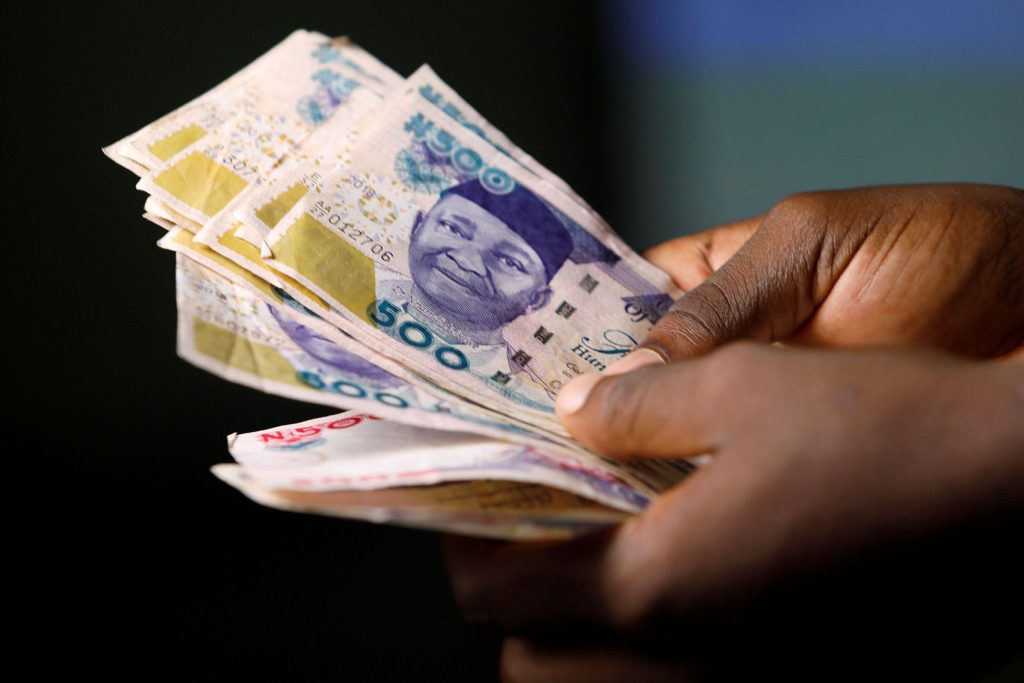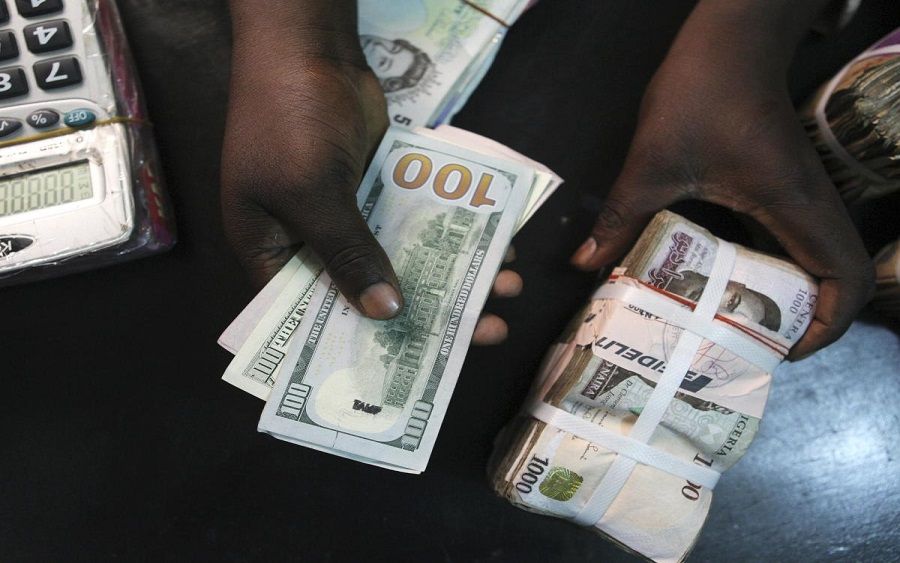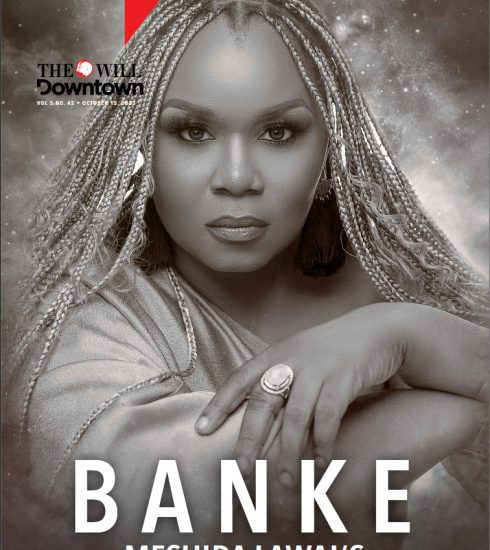The Ripple Effect: How Dollar Exchange Rate Impacts Nigeria’s Economy
Nigeria, the country with the largest population in Africa, has experienced several economic difficulties over the past 20 years. The unstable exchange rate between the US Dollar (USD) and Nigerian Naira (NGN) is a significant element that has constantly impacted the country’s economic stability.
Welcome to a journey inside the core of Nigeria’s economy, where one decision can have an impact on every aspect of our financial system. Consider the dollar exchange rate as a stone dropped into the serene waters of our economic pond. The way these ripples affect how we live, trade, and thrive will be demonstrated to you in this article.

Consider the metaphorical term “ripple effect” to show how even a minor change in the exchange rate can set off a chain of events that will have an impact on every part of the nation’s economic system. Imagine those waves starting from one point, moving outward, and affecting every aspect of our daily lives.
Now, you might be wondering how something as seemingly insignificant as changes in the value of the dollar can have such a significant effect. That is where economic magic comes into play. As you can see, our economy is interconnected like the threads of a complex web. These threads are pulled by dollar exchange rate flunctuations, affecting everything from how much we pay for groceries to how businesses decide where to put their money.
However, you don’t need to be an economist to comprehend this concept. We’re here to explain everything to you in simple terms without the use of technical lingo or an abundance of information. We’ll walk you through each phase while illustrating how these reverberations affect multiple industries, your decisions, and the opportunities that are open to you.
So, as we move into the heart of this article, keep this image in mind: the stone striking the water, the ripples spreading out, and the echoes echoing throughout Nigeria’s economy. Let’s examine how the varying dollar exchange rate produces a symphony of effects that influence us all.
THE FOREIGN EXCHANGE MARKET AND NIGERIA’S ECONOMY
Nearly 90% of all export earnings come from oil, which is a major contributor to Nigeria’s economy. The country’s foreign exchange market is, therefore, greatly impacted by variations in the price of oil on a worldwide scale. Nigeria generates more dollars from exports when oil prices are high, which boosts its foreign currency reserves and strengthens the naira. In contrast, as the country’s foreign exchange reserves decrease as oil prices fall, the naira’s value relative to the US dollar declines.
THE CONSEQUENCES OF A DEPRECIATING NAIRA
(1) RISING INFLATION
Expenses for importing products and services rise as a result of the naira’s depreciation. Nigerian’s costs for acquiring necessities go up as a result of this practice, often known as imported inflation.
(2) REDUCED PURCHASING POWER
The purchasing power of customers declines as prices rise due to inflation. Therefore, with the same amount of money, regular people can only afford less, which lowers their standard of living as a whole.
(3) UNEMPLOYMENT
Due to their reliance on imported raw materials, manufacturing and construction are two industries with greater production costs. Businesses can decrease production or even lay off workers to reduce these expenses, which raises the unemployment rate.
(4) HIGHER INTEREST RATES
The Central Bank of Nigeria may increase interest rates to combat inflation. The cost of borrowing has increased due to this alteration for both firms and consumers. Additionally, it can result in decreased consumer expenditure and company investment.
(5) FOREIGN DEBT BURDEN
Nigeria’s external debt is often denominated in foreign currencies. The cost of servicing this debt rises due to the weaker naira, diverting resources that may have gone toward development programs instead.
(6) NEGATIVE IMPACT ON INVESTMENT
When a country’s currency depreciates, foreign investors hesitate to invest there. They worry that their value will decline when they change their investments back into their local currencies.
(7) TRADE IMBALANCE
Import costs increase with a falling Naira, potentially lowering consumer demand for imports. On the other hand, it might not significantly boost exports, resulting in a trade imbalance that impacts the country’s current account.
(8) PRESSURE ON FOREIGN RESERVES
Foreign currency demand may rise as people and businesses look to protect their wealth as the value of the naira falls. Consequently, the nation’s foreign reserves, essential for preserving exchange rate stability, are put under strain.
(9) ECONOMIC UNCERTAINTY
Economic uncertainty brought on by currency depreciation might discourage long-term planning on the part of both enterprises and households. Major financial decisions are postponed by people’s reluctance, which slows down the economy.
(10) GOVERNMENT BUDGET CHALLENGES
The Nigerian government primarily relies on oil revenue, typically denominated in US dollars. A weakening naira makes it more difficult for the government to finance its budget and public services because the revenue is worth less in local currency.

Nigerian naira banknotes are seen in this picture illustration, September 10, 2018. REUTERS/Afolabi Sotunde/File Photo
CHALLENGES IN MANAGING THE DOLLAR-NAIRA EXCHANGE RATE
(1) OVERDEPENDENCE ON OIL REVENUE
Nigeria’s economy is vulnerable to the erratic global oil market due to its reliance on oil exports. This susceptibility can be decreased, and the value of the naira can be stabilised by diversifying the economy by investing in different industries like manufacturing and agriculture.
(2) UNBALANCED TRADE
Due to its dependency on imports, Nigeria constantly needs foreign money, notably the US Dollar. Exports and imports must remain balanced to prevent the naira from coming under too much pressure.
(3) FOREIGN RESERVES
To keep the naira stable, Nigeria’s Central Bank controls foreign reserves. Nevertheless, keeping sufficient reserves to interfere in the foreign exchange market requires thoughtful planning and resource allocation.
(4) INFLATION MANAGEMENT
It is possible to affect inflation by changing the exchange rate. The price of necessary products and services can increase due to a sudden devaluation of the naira, subsequently impacting people’s purchasing ability.
(5) INVESTOR SENTIMENT
Foreign investors regularly monitor the exchange rate when considering an investment in Nigeria. Uncertainty brought on by a fluctuating exchange rate might make it challenging to draw in and keep foreign direct investments.
(6) ECONOMIC POLICY INSTABILITY
Businesses and investors are experiencing uncertainty due to the frequent changes in Nigeria’s economic policy. A consistent and open policy framework must be established to maintain a stable business environment and stimulate economic growth.
(7) BLACK MARKET DYNAMICS
The difference between the official and black market rates for foreign exchange can result from the development of a parallel market. Economic distortions and arbitrage possibilities can also result from this.
(8) CURRENCY SPECULATION
The naira-dollar exchange rate has become more volatile due to speculative operations on the foreign exchange market. The Central Bank of Nigeria (CBN) must implement more stringent controls to stop these actions and calm the currency market.
(9) DOMESTIC PRODUCTION
Local producers can gain from weaker naira by making their goods more competitive. This, however, depends on the nation’s capacity to raise production to meet rising demand.
(10) COMMUNICATION CHALLENGES
The general public’s view of the exchange rate can affect economic behaviour. Governments must be open and upfront about their exchange rate management policies to keep the public’s trust.

RECOMMENDATIONS FOR A STABLE DOLLARNAIRA EXCHANGE RATE
(1) BUILD FOREIGN RESERVES
Prioritising the creation and upkeep of sizeable foreign reserves should be the Central Bank of Nigeria’s top priority. To stabilise the naira, operations in the foreign currency market are made possible by large reserves, which function as a cushion against exchange rate volatility.
(2) DIVERSIFY THE ECONOMY
Nigeria needs to stop depending so heavily on oil exports. Agriculture, technology, and other sectors can be diversified to produce more sources of foreign currency, which will relieve pressure on the naira.
(3) PROMOTE EXPORT-DRIVEN GROWTH
Nigerian companies should be encouraged and assisted in their international expansion. Foreign currency inflows rise with export-focused growth, which supports the naira’s strength.
(4) ENHANCE TRADE RELATIONS
Developing business ties with allies may result in more favourable trading conditions. Gains in foreign exchange earnings may result from negotiating bilateral trade agreements and lowering trade barriers.
(5) ENCOURAGE FOREIGN INVESTMENTS
By fostering an atmosphere that is conducive to foreign direct investment, the inflow of foreign currency can be boosted. The regulatory environment can be strengthened, investor-friendly legislation passed, and the infrastructure can be made more efficient to achieve this.
(6) EFFECTIVE MONETARY POLICY
The central bank should implement prudent monetary policies focusing on price stability. Inflation control prevents the naira’s rapid depreciation and preserves currency credibility.
(7) FISCAL DISCIPLINE
Good financial management is crucial. To avoid placing undue pressure on the exchange rate, the government should work to cut budget deficits and prudently manage public debt.
(8) ENHANCE FINANCIAL INCLUSION
Citizens can access traditional banking channels if financial awareness and inclusivity are promoted. As a result, the demand for foreign currency on the black market declines, supporting the naira’s stability.
(9) TRANSPARENCY IN EXCHANGE RATE MANAGEMENT
Open and regular communication on exchange rate policies and activities fosters public trust. Transparency promotes speculative activity and market stability.
(10) INVEST IN HUMAN CAPITAL
A skilled labour force is necessary for economic progress. Investments in education and skill development strengthen the Nigerian currency because they bring up opportunities for productivity and innovation.

INDIVIDUALS AND BUSINESSES COPING STRATEGIES FOR INDIVIDUALS
(1) DIVERSIFY YOUR INVESTMENTS
Invest in equities, bonds, and real estate, among other asset classes, to diversify your investment. Diversification acts as a safety net and reduces the risk brought on by changes in exchange rates.
(2) CREATE A RESERVE FUND
Create a naira emergency fund to pay for basic necessities for at least three to six months. When the economy is unsure, this fund serves as a safety net.
(3) MONITOR CURRENCY TRENDS
Observe projections and shifts in exchange rates. To make well-informed judgments on currency exchange and remittances, keep an eye on financial news and talk to professionals.
(4) CONSIDER FIXED DEPOSITS
Fixed deposit accounts with foreign currency amounts can provide security and defence against naira depreciation. To select the best choice, do your research and compare prices.
(5) LIMIT FOREIGN CURRENCY BORROWING
Consider your options carefully if you must borrow money in foreign currency. Changes in the exchange rate have the potential to make your debt load much heavier, putting additional strain on your finances.
FOR BUSINESSES
(1) HEDGE AGAINST CURRENCY RISK
Fix exchange rates using hedging strategies for future transactions like forward contracts and options. This protects your business from unanticipated currency fluctuations.
(2) SOURCE LOCALLY
Source raw materials and supplies locally, whenever possible. This lessens exposure to currency risk and promotes indigenous industries.
(3) ADJUST PRICING STRATEGICALLY
If you import or export products, consider changing your pricing approach to account for fluctuations in the currency rate. Profit margins and competitiveness can be preserved in this way.
(4) REVIEW CONTRACTS
Consider incorporating clauses that cover changes in exchange rates in long-term contracts. Future losses and disagreements can be lessened as a result of this.
(5) DIVERSIFY MARKET EXPOSURE
By focusing on both domestic and foreign markets, you may increase the number of your customers. This diversity reduces the impact of economic downturns in any particular market.
CONCLUSION
The shifting value of the US dollar has recently caused Nigeria’s economy to suffer considerable losses. The value of the naira has decreased due to inflation, investment losses, an increase in debt, and a decline in foreign reserves. To mitigate these effects, Nigeria must diversify its economy, support homegrown industries, and establish an open and consistent framework for economic policy. Nigeria can improve its long-term economic stability and reduce its sensitivity to exchange-rate fluctuations by implementing these strategies.


Dorcas Akintoye is a versatile writer with a passion for beauty, fashion, relationships, and culinary delight. With a keen eye for detail and a passion for storytelling, she adds a touch of elegance to every topic she explores. She is a writer at THEWILL DOWNTOWN.







Surviving the Storm: Nigerian Palm Oil Producers Fight Harsh Economic Climate – Harbinger
1 year ago[…] removal of fuel subsidies and the surge of the dollar’s value have intensified inflationary pressures, significantly affecting Nigerian businesses; rising input and output […]
Nigeria’s Rising Costs Threaten Livelihoods of Osun Pepper Farmers – Harbinger
1 year ago[…] the naira weakens, businesses face intensified inflation, rising production costs, and the threat of job cuts. To curb inflation, the Central Bank […]